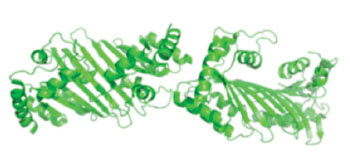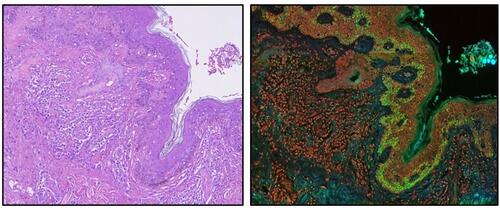Gene Mapping Reveals Mutation in Myeloma Patients Linked to High Risk of Treatment Failure
By LabMedica International staff writers
Posted on 04 May 2015
Gene mapping of patients suffering from myeloma has enabled the identification of a genetic signature linked to the likelihood of the disease becoming more genetically complex and more likely to evolve into treatment-resistant forms.Posted on 04 May 2015
Investigators at the Institute of Cancer Research (London, United Kingdom) sequenced 463 presenting cases of myeloma enrolled in the United Kingdom Myeloma XI study using whole exome sequencing, which determines the DNA sequence of the protein-coding exon regions of tens of thousands of genes simultaneously.

Image: Representation of a member of the APOBEC family of deaminase enzymes (Photo courtesy of Wikimedia Commons).
They reported detecting an APOBEC mutational signature in 3.8% of cases. APOBEC, also known as apolipoprotein B mRNA-editing enzyme, encodes a member of the AID/APOBEC family of polynucleotide (deoxy) cytidine deaminases, which convert cytidine to uridine. Other AID/APOBEC family members are involved in mRNA editing, somatic hypermutation, recombination of immunoglobulin genes, and innate immunity to retroviral infection.
Patients with a genetic signature that included the APOBEC mutation had an increased mutational load and a poor prognosis for recovery.
Senior author Dr. Gareth Morgan, professor of hematology at the Institute of Cancer Research, said, “The treatment of myeloma has improved in recent years, but there are still a significant number of patients who succumb to the disease. Our research has identified, for the first time, several genetic features that indicate which patients are at high risk of developing more advanced cancer. In the future we hope to be able to use this information to test for patients most at risk, and be able to target specific treatment to their individual needs, bolstering their chance of survival.”
Related Links:
Institute of Cancer Research













